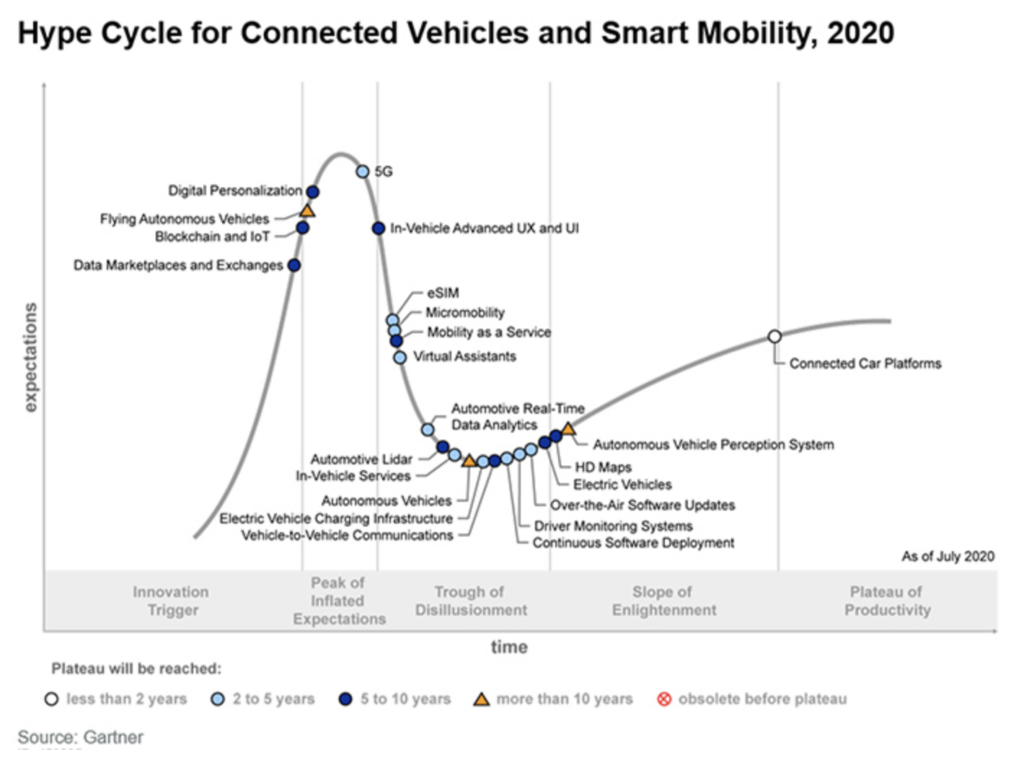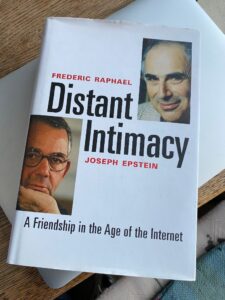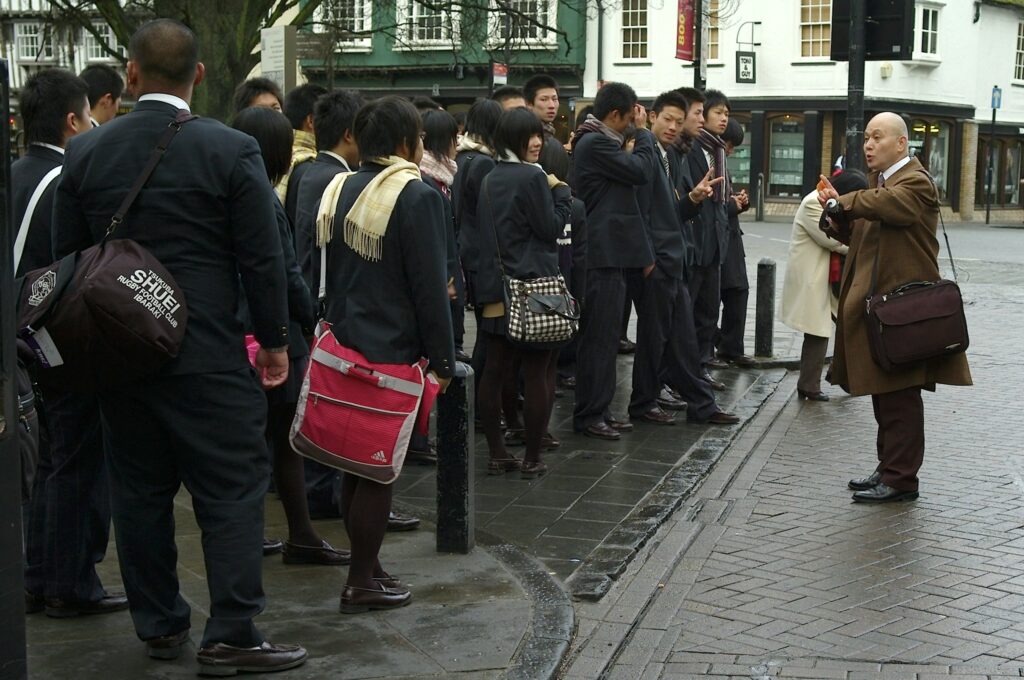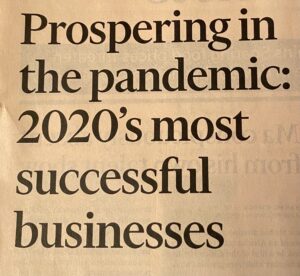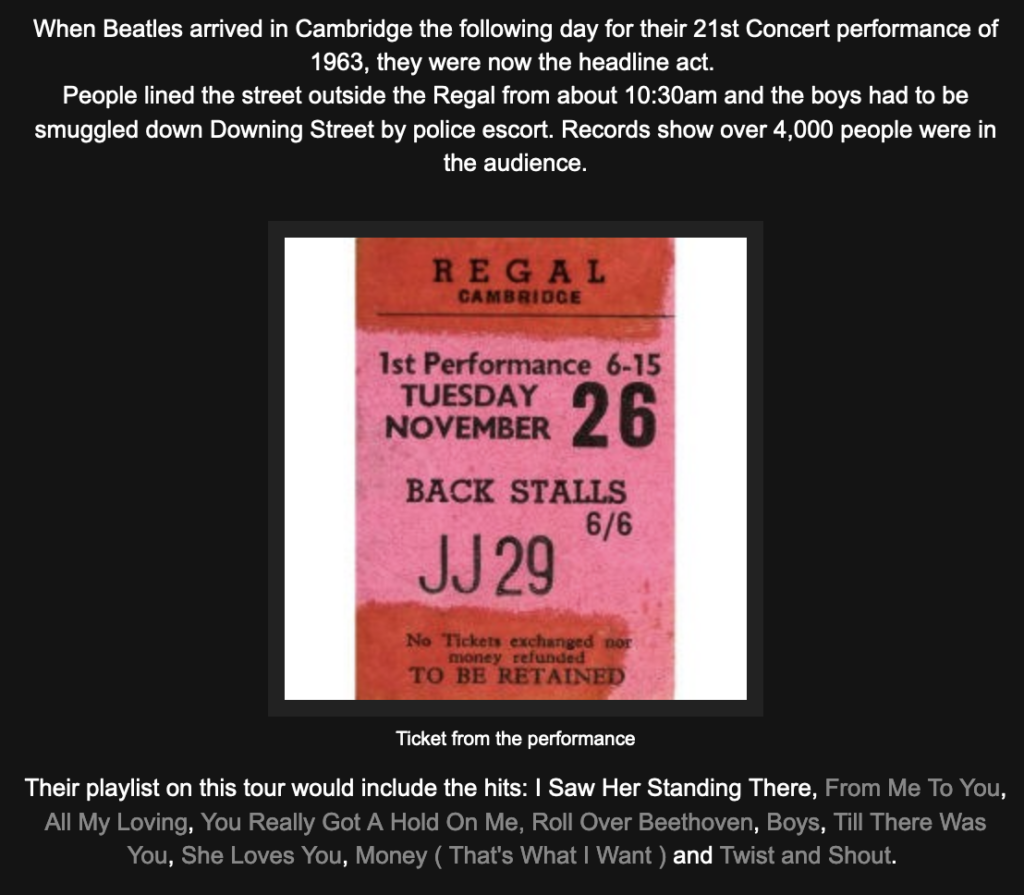Thanks to Andrew Ingram for the image.
It’s Deja Vu all over again
This is the first day of Lockdown 2.0. It all feels eerily familiar — except that the weather is much worse, and it’s cold outside.
Out of interest, I dug out my blog for the period — it was when I started my audio diary
Here’s the first episode.
I did the diary for the first 100 days and then stopped, because it was taking up quite a lot of time and our new Research Centre was starting up, so I was becoming busier again. Eventually I put the (lightly-edited) scripts together in a book — 100 Not Out! A Lockdown Diary. I didn’t think it merited felling any trees and so published it as a Kindle book (in itself an interesting learning experience, btw). If you’re interested you can find it here.
Quote of the Day
If a lot of Big Tech is starting to lose its conjuring power, there is one technology that manages to be both hype and, to some, fake news: the vaccine(s). Grateful as I am for the incredible effort that went in to accomplishing the vaccines so quickly, my concern for the coming year and beyond is how the story is being rewritten into a fable that our technological prowess omnia vincit. It might be hard to imagine now that the history of the pandemic could be turned into a triumphant narrative of human control over nature, but lost battles have been transformed into glorious conquest before.
Already some are losing sight of the failures in organization, in humanity, in preparedness that have made the vaccine glow like a grail. This is unlikely to be the only challenge we see in the coming decade, or the coming year, that can be solved more easily, quickly, and cheaply through changing human behavior and which we prefer to attack using money and technology. The climate crisis leaps to mind. I hope that we can engrave some of the lessons of this past year into our collective consciousness, but I have little confidence that they will function any better than the Japanese stones warning “Do Not Build Below This Point” that became so celebrated after the tsunami hit.
- Bruce Sterling, in his contribution to this years annual start-of-year online discussion on THE WELL — the world’s first online discussion group.
Musical alternative to the morning’s radio news
Mark Knopfler | Brothers In Arms | Albert Hall | 2019
Robotic euphemisms Magnificent rant from Dave Winer:
Tuesday, January 5, 2021 Audible just gave me a status upgrade to “nibbler.’ I don’t know who designs these things, but did they think that I, a sentient human being of 65 years and many accomplishments would appreciate being labeled as such by a fucking algorithm? This is right up there with Heroku telling me (again via algorithm) that I am a “hobbyist” developer. Excuse me. I have a MS in Computer Science from a fine school. I have won awards for my software, and invented many things, probably as many as anyone at your fine company, so please keep your opinion of my programming ability to your robot self. Sincerely, Dave Winer, a master of science.
Long Read of the Day
An Oscar Winner Made a Khashoggi Documentary. Streaming Services Didn’t Want It.
Now I wonder why that might be?
Brexit freezes .eu domains for Brits
If you own one of the 81,000 .eu domains registered by UK residents then you have work to do – and just three months in which to do it.
How much are tech workers paid?
Interesting numbers from the New York Times:
These are the most recent yearly compensation figures for the typical worker at these companies, from documents released for annual meetings of shareholders:
Alphabet (Google’s parent company): $258,708
Facebook: $247,883
Microsoft: $172,142
Apple: $57,783
Amazon: $28,848 ($36,640 for full-time workers in the U.S.)
For comparison, the typical pay for full-time, year-round workers in the United States was about $52,000 in 2019. Apart from Amazon, these companies only disclose the pay calculated from their global work forces.
What’s odd about these numbers are the figures for Apple and Amazon. The reason seems to be the composition of the companies’ staff. Apple has a large number of employees at its retail stores. And a big chunk of Amazon’s rapidly growing global work force of more than 1.2 million are people who are working in warehouses and package sorting centres, whereas Google and Facebook’s employees are mostly office workers in relatively highly paid jobs like engineers.
“The big omission from these compensation figures,” says the Times,
is the shadow work force of contractors at pretty much all the Big Tech companies. At Google, for example, direct employees are outnumbered by temps and contractors, who tend to have lower pay and less opportunity for advancement than the company’s full-time workers.
I’ll bet they get paid a lot less. And have fewer (or no) perks.
Another, hopefully interesting, link
- An AI-generated album in the style of the Beatles. Link. Hmmm… Nice try, but gamma-minus.
This blog is also available as a daily email. If you think this might suit you better, why not subscribe? One email a day, delivered to your inbox at 7am UK time. It’s free, and there’s a one-click unsubscribe if you decide that your inbox is full enough already!



